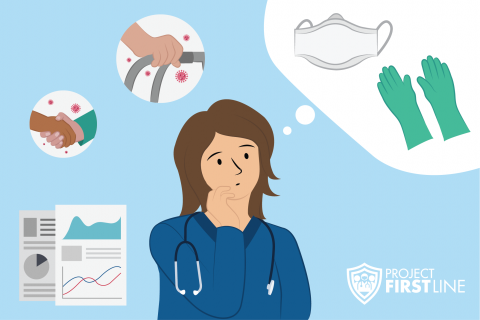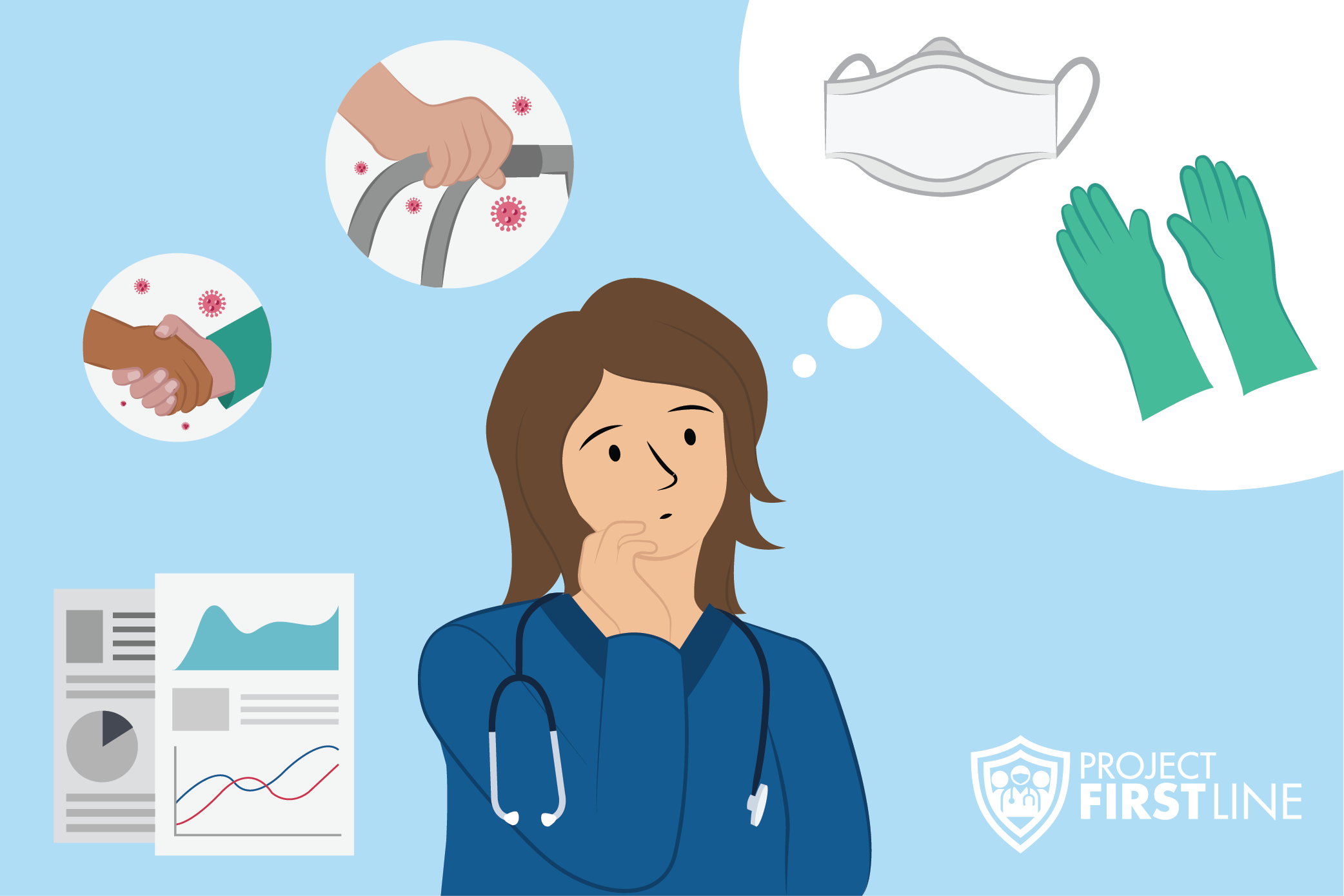
In 2021, the CDC developed Project Firstline to focus on infection control education for frontline healthcare workers, such as staff working in nursing homes, skilled nursing and assisted living facilities, and various supported care homes and hospitals.
This training was especially pertinent to public health practitioners in Washington State, as many of the first US-based Covid-19 cases appeared in long-term care facilities (LTCF) in the Seattle area. To address this situation, the Washington State Department of Health subsequently partnered with the Northwest Center for Public Health Practice to tailor Project Firstline to the specific needs and concerns of LTCFs in the state.
Erica Ellis, an Instructional Designer with NWCPHP, spoke about the unique challenges involved in this project. “The key to making this training successful was ensuring that everyone at these facilities was actively involved in stopping the spread of COVID and related diseases,” Erica explained. “The audience we were trying to reach was diverse, and included RNs and CNAs, as well as folks working in environmental services and housekeeping who don’t have a medical background.”
Reaching this diverse audience was a challenge. “We wanted to make sure that this training was relevant and accessible to staff who have a wide range of professional and educational backgrounds, as well as varying levels of literacy and English language proficiency. And, of course, all this was happening during COVID, when these facilities were seeing a lot of staff turnover.”
“To make this training engaging and improve buy-in, we needed to give people a ‘why’,” Erica noted. “We drew a lot from adult learning theory, which meant allowing staff to explore infection control concepts and practices through scenario-based activities. We viewed it as a Choose Your Own Adventure book, but in this case, the ‘adventure’ is stopping the spread of infection. We worked closely with our partners at the Department of Health to develop scenarios that reflected the realities of staff working in LTCF so they could practice making important decisions in a low stake setting.”
“We also tried to define terms as simply and clearly as possible, break down complex ideas into small steps, and use images and graphics to improve understanding. We’ve made all trainings available in English and Spanish and hope to be able to offer them in additional languages in the future.”
Project Firstline’s first six modules provided an introduction to infection control, explored the spread of germs and pathogens, and emphasized the essential role of cleaning and disinfection, hand-washing and personal protective equipment.
These modules have been shared with numerous organizations throughout the state, so tracking down data on specific outcomes is a challenge. “While the data are limited, we can see that over seven hundred LTCF staff have completed these modules,” Erica said. “The feedback also indicates that the information is understandable, applicable, and useful, and we believe these modules are making a very positive impact.”
While the focus on COVID has diminished, LTCFs and nursing homes remain common sites for the spread of other infectious diseases. To address this, Project Firstline is currently pilot-testing a new module on enhanced barrier precautions with a specific focus on nursing homes. “This new module aims to prevent the spread of multidrug-resistant organisms that unfortunately are very common in nursing homes,” Erica explained. “These organisms can spread rapidly and be very deadly, both for residents as well as staff and their families.”
Results from the pilot tests of this new module will be available later this spring. “We’ll make any adjustments we need to in order to ensure these materials are accessible to our audience,” Erica said. “After that, it’ll go live and nursing home staff across the state will be able to access them.”
Staff who complete the existing Firstline training can earn two hours of continuing education credits via the Washington State DSHS or a CNE certificate for two contact hours. Visit Project Firstline to learn more about these modules and to access the training.


